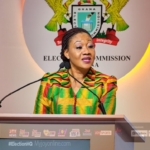
Euphoria Africa Foundation has unveiled a major 2025 maternal and child health initiative, rallying a coalition of public figures and creatives to support three under-resourced health facilities and raise funds for urgent upgrades.
The project was announced at an exclusive launch dinner as part of the foundation’s annual charity gala campaign, with organisers setting a fundraising target and a November gala date to drive the effort.
The programme will target three facilities identified as operating under severe constraints, including Agortor CHPS Compound, Lamptey Mills CHPS Compound, and the Princess Marie Louise Children’s Hospital in Accra.
The foundation says the support will include new maternity beds, infant cots and warmers, emergency equipment, sanitation upgrades and other essential supplies to improve conditions for mothers, babies and frontline staff.
International data show Ghana’s maternal mortality ratio remains elevated compared with global targets, and neonatal and infant mortality rates continue to be a development concern.
Euphoria Africa says its campaign is designed to reduce basic capacity gaps that leave women delivering without beds, newborns sharing beds with mothers, and staff without basic rest and emergency equipment.
Organisers presented the launch as more than a one-night fundraiser.
The foundation is asking ambassadors to leverage their networks and platforms to mobilise resources and follow through on long-term commitments.
Attendees and supporters at the launch included high-profile figures from government, diplomacy, business and entertainment, with previous editions of the gala drawing names such as Joselyn Dumas, Nikki Samonas and Roberta Annan among invited ambassadors and guests.
The foundation has also confirmed live performances and cultural programming as part of the main fundraising gala.
Euphoria Africa has set a specific fundraising goal for the gala and outlined how money raised will be spent.
The event page lists concrete deliverables that include a set number of maternity beds, renovation work at selected CHPS compounds, emergency equipment, sanitation improvements and local employment during upgrades.
The gala is scheduled for November 29 at the Subtle Class Event Centre in Accra, and organisers are already taking table and ticket bookings.
Local health workers and community leaders who have guided the foundation’s site visits emphasised the everyday realities that the campaign aims to change.
In rural and peri-urban clinics, shortages of cots, sterile equipment and basic infrastructure can mean avoidable complications for mothers and newborns.
The foundation says its approach pairs immediate relief with upgrades that strengthen facility capacity and dignity of care.
The campaign is also meant to be symbolic of a wider trend in Ghanaian civil society, where culture, media and business figures increasingly partner with health and development initiatives.
Euphoria Africa frames the gala as a way to marshal private sector support and public attention toward persistent health gaps, while offering contributors visibility and measurable impact.
What happens next, according to organisers, is a mix of fundraising and project delivery.
Funds raised at the gala will be channelled into procurement and renovations, and the foundation intends to publish impact metrics and updates on progress.
For donors who cannot attend, the foundation’s website lists giving options and contact details for sponsorship and in-kind support.
For a broader audience, the launch is a reminder that improving maternal and child health requires coordinated action, targeted resources and follow-through.
The Euphoria Africa initiative aims to turn public attention into concrete upgrades at facilities where small investments can translate into lives saved and dignity restored.




